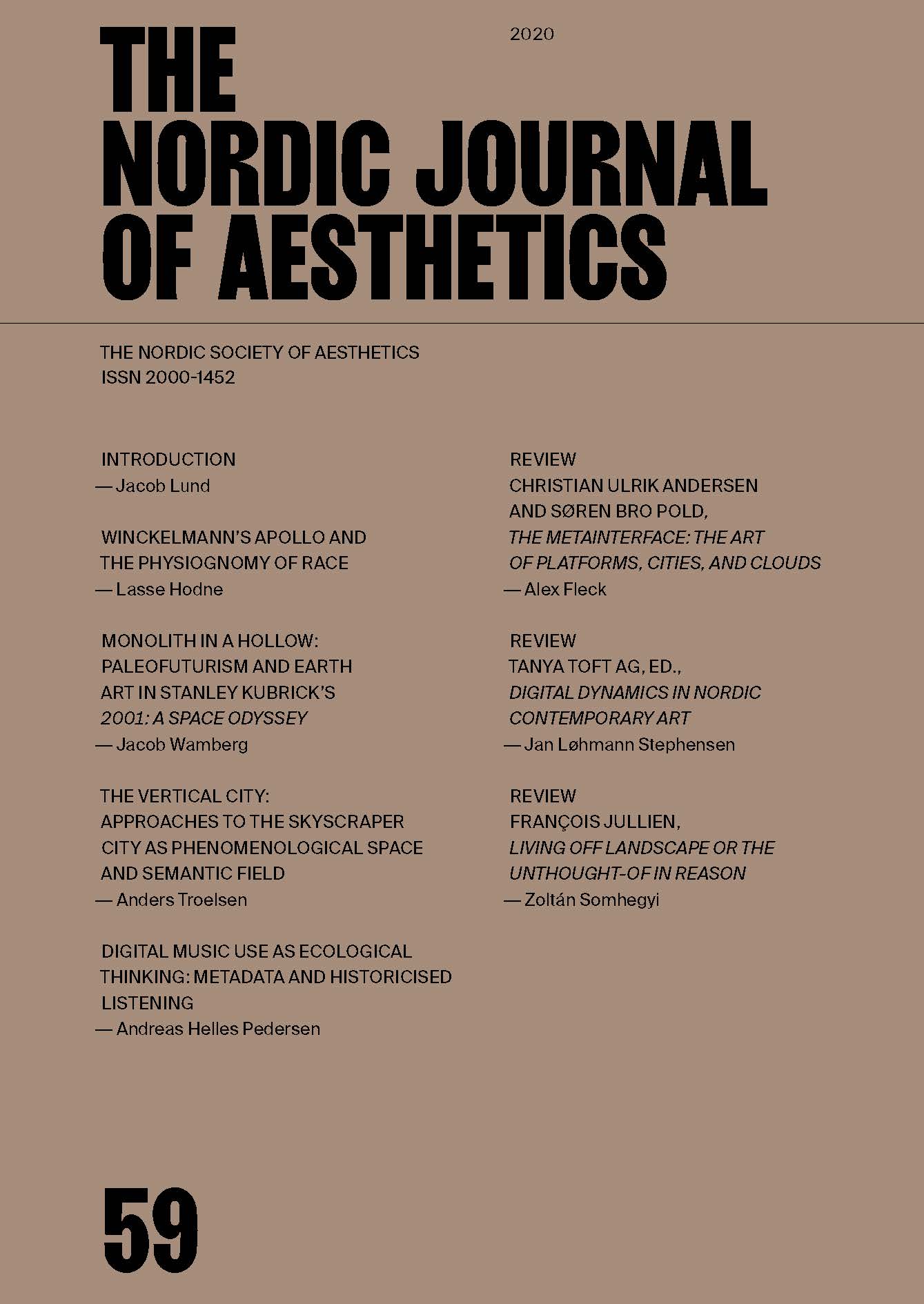DIGITAL MUSIC USE AS ECOLOGICAL THINKING: METADATA AND HISTORICISED LISTENING
DOI:
https://doi.org/10.7146/nja.v29i59.120472Keywords:
Metadata, Digital Music Archives, Musical Assemblage, Virtuality, Listening, Ecology, Recorded Music HistoryAbstract
In claiming that metadata possess the power to put historical awareness into the act of listening, this article examines digital music use as an aesthetic situation driven by potentialities of becoming. Working from a theoretical foundation amalgamating digital music archives and metadata as environments the article discusses Georgina Born’s notion of musical assemblages alongside the concept of virtuality, and by letting these meet the article argues for a musical assemblage built from sensibilities of becoming rather than layers of mediation. The inner workings of digital music use constitute an ecology in which recorded music history moves and reconnects, and this makes the historicity of recorded music be fluid, thus turning listening into a historicised action. In exemplifying this, the article discusses some of the strategic programming of metadata on the digital music platform Diskoteket, and through an analysis of sampled music, the prospects of recorded music’s historicity are shown as affective capacities.
Downloads
Published
How to Cite
Issue
Section
License
Authors who publish with this journal agree to the following terms:
- Authors retain copyright and grant the journal right of first publication with the work simultaneously licensed under a Creative Commons Attribution License that allows others to share the work with an acknowledgement of the work's authorship and initial publication in this journal.
- Authors are able to enter into separate, additional contractual arrangements for the non-exclusive distribution of the journal's published version of the work (e.g., post it to an institutional repository or publish it in a book), with an acknowledgement of its initial publication in this journal.
- Authors are permitted and encouraged to post their work online (e.g., in institutional repositories or on their website) prior to and during the submission process, as it can lead to productive exchanges, as well as earlier and greater citation of published work (See The Effect of Open Access).




